What was Neoplatonism:
 Plato, the renowned ancient Greek philosopher, can be considered one of the first depth psychologists due to his pioneering concept of the tripartite soul. In Plato’s view, the human soul is composed of three distinct parts: the rational (logos), the spirited (thumos), and the appetitive (epithumia). This early model of the psyche laid the groundwork for future theories of personality and psychological development, including Freud’s structural theory of the mind and Jung’s theory of the collective unconscious.
Plato, the renowned ancient Greek philosopher, can be considered one of the first depth psychologists due to his pioneering concept of the tripartite soul. In Plato’s view, the human soul is composed of three distinct parts: the rational (logos), the spirited (thumos), and the appetitive (epithumia). This early model of the psyche laid the groundwork for future theories of personality and psychological development, including Freud’s structural theory of the mind and Jung’s theory of the collective unconscious.
Plato’s philosophy, known as Platonism, posed fundamental questions about the nature of reality, knowledge, and the human soul that continued to challenge thinkers for centuries. Platonism asserted the existence of eternal, unchanging Forms or Ideas that exist beyond the realm of the physical world and serve as the ultimate source of truth and goodness. This dualistic view of reality, which posited a sharp distinction between the world of Forms and the world of matter, raised important questions for both Christian theologians and materialist philosophers.
Neoplatonism, which emerged in the 3rd century CE, represented one of the most influential and sophisticated attempts to address the questions posed by Platonism. Neoplatonic philosophers, such as Plotinus, sought to reconcile Plato’s ideas with religious and mystical concepts drawn from various traditions, including Christianity, Judaism, and Egyptian theology.
While Neoplatonism built upon the foundations of Platonism, it also introduced several key differences. Neoplatonists posited a more elaborate and hierarchical view of reality, with the One serving as the ultimate source of all existence, followed by the realms of Intellect (Nous), Soul (Psyche), and Matter. They also placed greater emphasis on the idea of emanation, or the process by which all things flow from the One in a continual process of creation and return.
Firstly, What was Platonism?
Plato, the renowned ancient Greek philosopher, posed fundamental questions about the nature of reality, knowledge, and the human soul that have shaped Western thought for centuries. His ideas, particularly his concept of the tripartite soul, laid the groundwork for diverse philosophical and religious traditions, including what became the Christian and Islamic conception of soul, transcendentalism, as well as Middle Platonism and Neoplatonism. This article explores the key questions raised by Plato, his idea of the tripartite soul, and how these concepts influenced and challenged subsequent thinkers.
Plato’s Essential Questions:
Plato’s philosophy aimed to uncover the fundamental nature of reality and the place of human beings within it. His inquiries gave rise to several essential questions that have continued to shape philosophical and religious discourse:
What is the nature of reality?
Plato questioned whether the physical world we perceive through our senses is the ultimate reality or merely a shadow of a higher, more perfect realm. This question challenged thinkers to consider the existence of a transcendent reality beyond the material world.
What is the nature of knowledge?
Plato asked how we can attain true knowledge and whether it is possible to have certainty about the world around us. He argued that genuine knowledge is not based on sensory experience but on the apprehension of eternal, unchanging Forms or Ideas.
What is the nature of the human soul?
Plato’s conception of the soul as an immaterial and immortal entity raised questions about the relationship between the body and the soul, the soul’s origin and destiny, and its role in the attainment of knowledge and virtue.
What is the nature of the good life?
Plato’s philosophy emphasized the importance of virtue, justice, and the pursuit of wisdom as essential components of a fulfilling human life. This raised questions about the relationship between individual happiness and the common good, and the role of reason in guiding moral conduct.
Plato’s Tripartite Soul:
Central to Plato’s understanding of human nature is his concept of the tripartite soul. According to this view, the human soul is composed of three distinct parts or faculties:
The rational part (logos):
This is the highest part of the soul, associated with reason, wisdom, and the pursuit of knowledge. It is the part that apprehends eternal truths and guides the other parts of the soul towards virtue.
The spirited part (thumos):
This part of the soul is associated with courage, honor, and the desire for recognition. It is the source of emotional responses such as anger, shame, and pride, and plays a key role in the soul’s moral development.
The appetitive part (epithumia):
This is the lowest part of the soul, associated with bodily desires and the pursuit of pleasure. It is the part that is most closely tied to the physical world and can lead the soul astray if not properly controlled by reason.
For Plato, the ideal state of the soul is one in which the rational part governs the spirited and appetitive parts, ensuring that the soul as a whole is guided by reason and directed towards the pursuit of wisdom and virtue.
The Influence of Plato’s Ideas on Subsequent Thinkers:
Plato’s questions and his concept of the tripartite soul had a profound impact on subsequent philosophical and religious traditions, each of which sought to provide its own answers to the fundamental issues he raised.
Christian thinkers, such as St. Augustine and St. Thomas Aquinas, found in Plato’s philosophy a powerful intellectual framework for understanding the relationship between God, the world, and the human soul. They saw in Plato’s concept of eternal Forms a reflection of the divine mind and in his tripartite soul a model for understanding the relationship between reason, will, and desire in the Christian life.
At the same time, Christian thinkers had to grapple with the challenge of reconciling Plato’s ideas with the central tenets of their faith, such as the doctrine of creation ex nihilo (out of nothing), the Incarnation, and the resurrection of the body. This led to a creative synthesis of Platonic and Christian ideas, as exemplified in the works of thinkers such as Origen, Pseudo-Dionysius, and John Scotus Eriugena.
For materialists, Plato’s questions about the nature of reality and knowledge had to be answered in terms of the properties and interactions of matter, without recourse to immaterial entities or transcendent realms. This led to the development of atomistic and mechanistic theories of the universe, which sought to explain all phenomena in terms of the motion and collision of tiny, indivisible particles.
Neoplatonism:
A key difference between Platonism and Neoplatonism was the latter’s emphasis on the individual soul’s journey of ascent and return to the One. Neoplatonists saw the human soul as a microcosm of the larger cosmic order, capable of ascending through the various levels of reality and ultimately achieving union with the divine. This idea of the soul’s journey would later find resonance with Jung’s concept of the individuation process, or the path of psychological and spiritual development that leads to the realization of the Self.
It is difficult to say with certainty what Plato himself would have thought of Neoplatonists like Plotinus, given the span of centuries that separated them. However, it is likely that Plato would have appreciated the Neoplatonists’ efforts to grapple with the deep questions raised by his philosophy and to extend his ideas in new and creative ways. At the same time, Plato may have had reservations about some of the more mystical and religious aspects of Neoplatonism, which went beyond the scope of his own philosophical system. This is complicated by the fact that Plato did not want to answer his own questions, and maybe thought they were unanswerable. Other scholars think that even Plato’s questions were not straightforwardly literal and might have been allegorical.
Regardless of Plato’s hypothetical views, Neoplatonism remains a rich and fascinating chapter in the history of Western thought, one that continues to inspire and challenge us to this day. By exploring the key ideas of Neoplatonism, particularly as developed by Plotinus, we can gain valuable insights into the nature of the psyche, the path of spiritual development, and the enduring questions of human existence.
Neoplatonist thinkers, such as Plotinus and Proclus, saw in Plato’s philosophy a profound spiritual vision that could guide the soul’s ascent towards the divine. They developed a metaphysical system that posited a hierarchy of being, with the One or the Good at the summit, and the material world at the bottom.
For Neoplatonists, Plato’s concept of the tripartite soul provided a model for understanding the soul’s journey of purification and illumination, as it progressively detaches itself from the material world and ascends towards the divine. They saw in Plato’s idea of the rational soul a reflection of the divine intellect, and in his concept of the good life a path towards union with the One.
Who was Plotinus?
Plotinus (c. 204-270 CE) was a major philosopher of the ancient world and the founder of Neoplatonism, a philosophical and spiritual movement that emerged in the 3rd century CE. Born in Egypt and educated in Alexandria, Plotinus traveled widely before settling in Rome, where he established a school of philosophy and attracted a devoted following. Plotinus was deeply influenced by the teachings of Plato, but he developed and expanded upon these ideas in significant ways. He sought to address fundamental questions about the nature of reality, the relationship between the material and spiritual worlds, and the path to spiritual enlightenment. Plotinus posited the existence of a supreme, transcendent principle called “the One” or “the Good,” which he saw as the source of all reality and the ultimate goal of all spiritual striving. He also developed a theory of emanation, according to which all of reality flows forth from the One in a series of descending stages, from the realm of Intellect to the realm of Soul to the material world. For Plotinus, the key to spiritual enlightenment lay in the soul’s journey of ascent, as it seeks to return to its source in the One through a process of purification and contemplation. Through his writings and teachings, Plotinus grappled with some of the most profound and enduring questions of human existence, and his ideas have had a lasting impact on Western philosophy, theology, and spirituality.
“Withdraw into yourself and look. And if you do not find yourself beautiful yet, act as does the creator of a statue that is to be made beautiful: he cuts away here, he smoothes there, he makes this line lighter, this other purer, until a lovely face has grown upon his work. So do you also: cut away all that is excessive, straighten all that is crooked, bring light to all that is overcast, labor to make all one glow of beauty and never cease chiseling your statue, until there shall shine out on you from it the godlike splendor of virtue, until you shall see the perfect goodness surely established in the stainless shrine.”
― Plotinus
Plotinian Concepts:
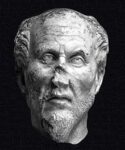 The Plotinian Concept of the One:
The Plotinian Concept of the One:
At the heart of Plotinian philosophy is the concept of the One, which he understood as the ultimate source and ground of all reality. For Plotinus, the One is the absolute unity and simplicity that transcends all duality and multiplicity, and from which all things emanate in a hierarchical procession.
According to Plotinus, the One is beyond all categories of being and thought, and cannot be grasped through discursive reasoning or intellectual understanding. Rather, it can only be experienced through a direct, mystical union that transcends the boundaries of the individual self.
This concept of the One has important implications for how we understand the nature of the self and the path of spiritual development. In Plotinian thought, the ultimate goal of human life is to return to the One and to realize our essential unity with the divine source of all existence.
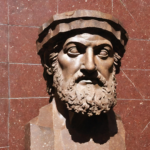 The Plotinian Path of Spiritual Ascent:
The Plotinian Path of Spiritual Ascent:
Plotinus taught that the path of spiritual development involves a gradual ascent from the world of multiplicity and change to the realm of unity and permanence. This ascent is facilitated by a process of purification and contemplation, in which the individual gradually detaches themselves from the realm of the senses and the passions, and turns their attention inward towards the realm of the intellect and the One.
Central to this process is the practice of virtue and the cultivation of wisdom. Plotinus believed that by living a life of moral and intellectual excellence, we can begin to align ourselves with the higher realities of the cosmos and to prepare ourselves for the ultimate union with the One.
Plotinus also emphasized the importance of beauty and aesthetic experience in the path of spiritual ascent. He believed that beauty is a reflection of the divine unity and harmony that underlies all of reality, and that by contemplating and appreciating beauty, we can begin to awaken to our own divine nature and to the presence of the One within us.
The Plotinian Understanding of the Soul:
In Plotinian philosophy, the soul is understood as an intermediary between the realm of the intellect and the realm of matter. It is the principle of life and consciousness that animates the body and participates in the divine nature of the One.
According to Plotinus, the soul has three main faculties or levels: the vegetative soul, which governs the basic functions of life and growth; the sensitive soul, which is responsible for perception and emotion; and the rational soul, which is the seat of reason and the highest aspect of the human being.
 For Plotinus, the ultimate goal of the soul is to ascend from the lower levels of the vegetative and sensitive soul to the higher level of the rational soul, and ultimately to unite with the divine intellect and the One. This process of ascent involves a gradual purification and transformation of the soul, in which it becomes increasingly detached from the realm of matter and the senses, and increasingly oriented towards the realm of the intellect and the divine.
For Plotinus, the ultimate goal of the soul is to ascend from the lower levels of the vegetative and sensitive soul to the higher level of the rational soul, and ultimately to unite with the divine intellect and the One. This process of ascent involves a gradual purification and transformation of the soul, in which it becomes increasingly detached from the realm of matter and the senses, and increasingly oriented towards the realm of the intellect and the divine.
The Plotinian Concept of Emanation:
One of the most distinctive features of Plotinian philosophy is the concept of emanation. According to Plotinus, all of reality emerges from the One in a hierarchical procession, with each successive level of being a less perfect image or expression of the divine unity.
At the highest level of this procession is the realm of the intellect or nous, which is the realm of pure thought and the first emanation from the One. Below the intellect is the realm of the soul, which is divided into the world soul and the individual souls of human beings and other living things. Finally, at the lowest level of the procession is the realm of matter, which is the furthest removed from the unity and perfection of the One.
This concept of emanation has important implications for how we understand the nature of the self and the path of spiritual development. It suggests that our individual souls are not separate or isolated entities, but are ultimately rooted in and derived from the divine source of all existence. It also suggests that the path of spiritual development involves a gradual ascent through the different levels of reality, from the realm of matter and the senses to the realm of the intellect and the One.
The Plotinian Practice of Contemplation:
Another key aspect of Plotinian philosophy is the practice of contemplation. For Plotinus, contemplation is the means by which we can ascend through the different levels of reality and ultimately unite with the One.
Contemplation involves a turning inward of the soul, away from the distractions and temptations of the material world, and towards the realm of the intellect and the divine. It is a practice of inner stillness and receptivity, in which we open ourselves to the presence of the One and allow ourselves to be transformed by its radiance and beauty.
Plotinus believed that contemplation is not a passive or escapist activity, but rather a dynamic and creative process that involves the active participation of the soul. Through contemplation, we not only receive the illumination of the divine, but also become co-creators with the One, helping to bring forth new forms of beauty and harmony in the world.
The Plotinian Understanding of Evil:
In Plotinian philosophy, evil is understood as a privation or absence of good, rather than as a positive or substantial reality in itself. According to Plotinus, evil arises when the soul becomes overly attached to the realm of matter and the senses, and forgets its true nature as an emanation of the divine.
This understanding of evil has important implications for how we approach the challenges and difficulties of life. It suggests that the path of spiritual development involves a gradual detachment from the realm of matter and the senses, and a turning towards the realm of the intellect and the One. It also suggests that the ultimate solution to the problem of evil lies not in external actions or interventions, but in the inner transformation of the soul.
Plotinian Methods to advance towards the One:
1. Contemplation (Theoria):
Plotinus emphasized the importance of contemplation as a means of ascending towards the One. Through deep reflection and meditation on the nature of reality, the soul can gradually detach itself from the material world and attain a higher state of consciousness.
2. Dialectic:
Plotinus believed that the practice of dialectic, or philosophical discourse, could help the soul to ascend towards the One. By engaging in rational inquiry and discussion, individuals can refine their understanding of reality and develop their capacity for abstract thought.
3. Purification (Katharsis):
For Plotinus, the soul’s ascent towards the One requires a process of purification, whereby the soul is gradually freed from its attachment to the material world. This involves the cultivation of virtues such as wisdom, justice, courage, and self-control, as well as the practice of asceticism and self-discipline.
4. Beauty and Art:
Plotinus saw beauty as a reflection of the divine and believed that contemplating beautiful objects, whether in nature or art, could help the soul to ascend towards the One. He encouraged his students to cultivate an appreciation for beauty and to use it as a means of spiritual upliftment.
5. Love and Devotion:
Plotinus taught that love and devotion to the One could help the soul to achieve union with the divine. By cultivating a deep sense of love and yearning for the supreme reality, individuals can open themselves up to the transformative power of the One.
6. Silence and Solitude:
Plotinus believed that the practice of silence and solitude could help the soul to achieve a state of inner stillness and receptivity to the divine. By withdrawing from the distractions of the external world and turning inward, individuals can create the conditions for spiritual insight and transformation.
7. Unity and Integration:
For Plotinus, the ultimate goal of the soul’s ascent is the experience of unity and integration with the One. This involves transcending the boundaries of the individual self and realizing one’s essential oneness with the divine source of all reality.
Implications of Plotinus for Contemporary Psychology:
Plotinus’ vision of the soul’s journey towards wholeness and unity bears a striking resemblance to Carl Jung’s concept of individuation, the process by which an individual becomes a well-functioning whole through the integration of the conscious and unconscious aspects of the psyche. Like Plotinus, Jung saw the goal of psychological development as the realization of the Self, the archetype of wholeness and the source of meaning and purpose in life.
One of the key insights of Plotinian philosophy that has important implications for contemporary psychology is the idea that the path to spiritual and psychological wholeness is one of inner transformation and self-reflection. Plotinus emphasized the importance of contemplation, meditation, and self-examination as means of achieving a deeper understanding of oneself and the nature of reality.
This emphasis on introspection and self-awareness is echoed in many contemporary psychological approaches, such as mindfulness-based therapies, which encourage individuals to cultivate a non-judgmental and accepting attitude towards their thoughts, feelings, and experiences. By turning inward and observing the workings of their own minds, individuals can gain insight into the patterns and habits that shape their lives and develop greater self-understanding and emotional regulation.
Another important aspect of Plotinian thought that has relevance for contemporary psychology is the idea of acceptance and detachment. Plotinus taught that the path to spiritual enlightenment involves letting go of attachment to the material world and cultivating a sense of equanimity and inner peace.
This idea is reflected in the Serenity Prayer, a popular prayer used in Alcoholics Anonymous and other 12-step programs, which emphasizes the importance of accepting the things one cannot change, changing the things one can, and having the wisdom to know the difference. By focusing on what is within one’s control and letting go of what is not, individuals can reduce stress and anxiety and develop greater resilience in the face of life’s challenges.
In the context of psychotherapy, a Plotinian approach would encourage clients to focus on their inner world and the things they can change, such as their attitudes, beliefs, and behaviors, rather than trying to control external circumstances or other people. By cultivating a sense of detachment and inner peace, individuals can become less reactive to the ups and downs of life and more able to navigate challenges with grace and equanimity.
Plotinus’ philosophy also has important implications for the role of spirituality and transcendence in psychological healing and growth. For Plotinus, the ultimate goal of human life is to achieve union with the divine, a state of ultimate wholeness and integration. This idea is reflected in Jung’s concept of the Self, which he saw as the archetype of wholeness and the source of spiritual meaning and purpose.
By recognizing the spiritual dimension of human experience and the importance of transcendence in psychological healing, contemporary psychologists can help individuals to connect with a deeper sense of meaning and purpose in life. This may involve incorporating practices such as meditation, prayer, or ritual into the therapeutic process, or helping clients to explore their own spiritual beliefs and values.
Ultimately, the insights of Plotinian philosophy and Neoplatonism offer a rich and profound framework for understanding the nature of the psyche and the path to psychological and spiritual wholeness. By emphasizing the importance of introspection, acceptance, and transcendence, Plotinus anticipated many of the key insights of contemporary psychology and provided a roadmap for individuals seeking to achieve greater self-understanding, emotional regulation, and inner peace.
As contemporary psychologists continue to explore the intersection of spirituality, philosophy, and mental health, the wisdom of Plotinus and the Neoplatonic tradition remains a valuable resource for all those seeking to promote healing, growth, and transformation in themselves and others. By integrating the insights of this ancient tradition with the latest developments in psychological science and practice, we can develop a more holistic and integrative approach to mental health and well-being that honors the full complexity and potential of the human experience.
Read More Depth Psychology Articles:
Taproot Therapy Collective Podcast
Mystics and Gurus
Bibliography:
Plato. (Various editions). The Republic.
Plato. (Various editions). Timaeus.
Plato. (Various editions). Phaedrus.
Plotinus. (Various editions). The Enneads.
Further Reading:
Armstrong, A.H. (1967). The Cambridge History of Later Greek and Early Medieval Philosophy. Cambridge University Press.
Gerson, L.P. (1994). Plotinus. Routledge.
Hadot, P. (1993). Plotinus or The Simplicity of Vision. University of Chicago Press.
O’Meara, D.J. (1993). Plotinus: An Introduction to the Enneads. Clarendon Press.
Rist, J.M. (1967). Plotinus: The Road to Reality. Cambridge University Press.
Wallis, R.T. (1972). Neoplatonism. Gerald Duckworth & Co Ltd.
Corrigan, K. (2005). Reading Plotinus: A Practical Introduction to Neoplatonism. Purdue University Press.
Rappe, S. (2000). Reading Neoplatonism: Non-discursive Thinking in the Texts of Plotinus, Proclus, and Damascius. Cambridge University Press.
Remes, P. (2008). Neoplatonism. University of California Press.
Jung, C.G. (1969). The Archetypes and the Collective Unconscious. Princeton University Press.
Dodds, E.R. (1951). The Greeks and the Irrational. University of California Press.
Copleston, F. (1946). A History of Philosophy, Volume 1: Greece and Rome. Continuum.
Emilsson, E.K. (2017). Plotinus. Routledge.
Merlan, P. (1969). Monopsychism, Mysticism, Metaconsciousness: Problems of the Soul in the Neoaristotelian and Neoplatonic Tradition. Martinus Nijhoff.
Dillon, J. (1996). The Middle Platonists: 80 B.C. to A.D. 220. Cornell University Press.









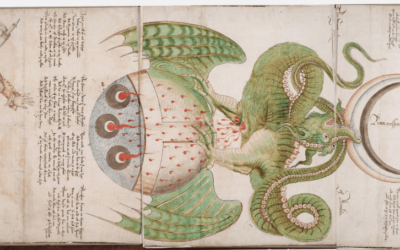










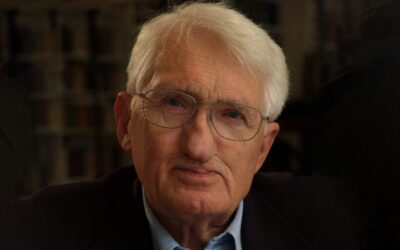



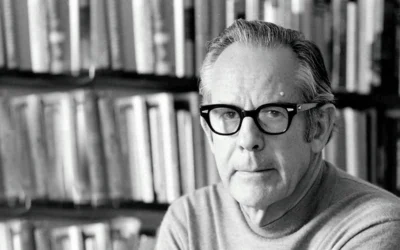

0 Comments